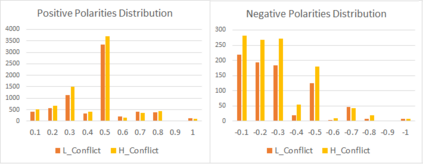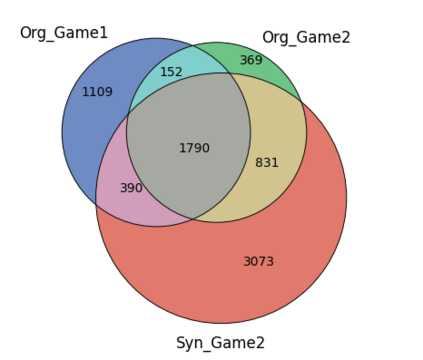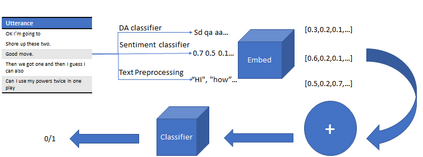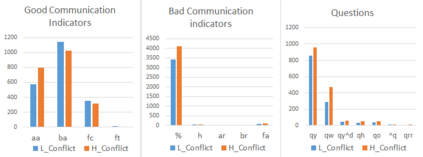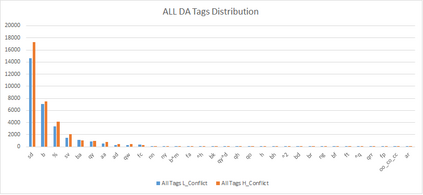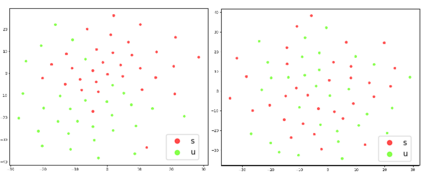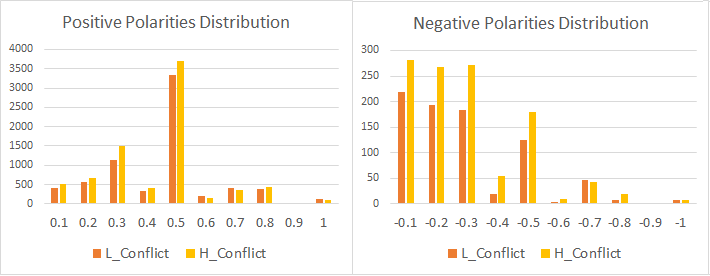Conflict prediction in communication is integral to the design of virtual agents that support successful teamwork by providing timely assistance. The aim of our research is to analyze discourse to predict collaboration success. Unfortunately, resource scarcity is a problem that teamwork researchers commonly face since it is hard to gather a large number of training examples. To alleviate this problem, this paper introduces a multi-feature embedding (MFeEmb) that improves the generalizability of conflict prediction models trained on dialogue sequences. MFeEmb leverages textual, structural, and semantic information from the dialogues by incorporating lexical, dialogue acts, and sentiment features. The use of dialogue acts and sentiment features reduces performance loss from natural distribution shifts caused mainly by changes in vocabulary. This paper demonstrates the performance of MFeEmb on domain adaptation problems in which the model is trained on discourse from one task domain and applied to predict team performance in a different domain. The generalizability of MFeEmb is quantified using the similarity measure proposed by Bontonou et al. (2021). Our results show that MFeEmb serves as an excellent domain-agnostic representation for meta-pretraining a few-shot model on collaborative multiparty dialogues.
翻译:通信中的冲突预测是设计通过及时提供援助支持成功团队合作的虚拟代理机构所不可或缺的。我们研究的目的是分析谈话以预测合作的成功。不幸的是,资源稀缺是团队研究人员共同面临的一个问题,因为很难收集大量培训实例。为了缓解这一问题,本文件引入了一个多功能嵌入器(MFeemb),改进了在对话序列方面受过培训的冲突预测模型的通用性。MFeemb通过纳入词汇、对话动作和情绪特征,利用对话的文字、结构和语义信息。使用对话动作和情绪特征减少了主要由词汇变化引起的自然分布变化的性能损失。本文展示了MFEmb在领域适应问题上的绩效,该模型在从一个任务领域进行谈话培训,用于预测不同领域的团队业绩。MFeemb的通用性能是使用Bontonou等人提议的类似性计量法(2021年)加以量化的。我们的成果显示,MFEmb在模式上作为模型-不可分解的多指标性对话中一个极好的域-合作性代表。

